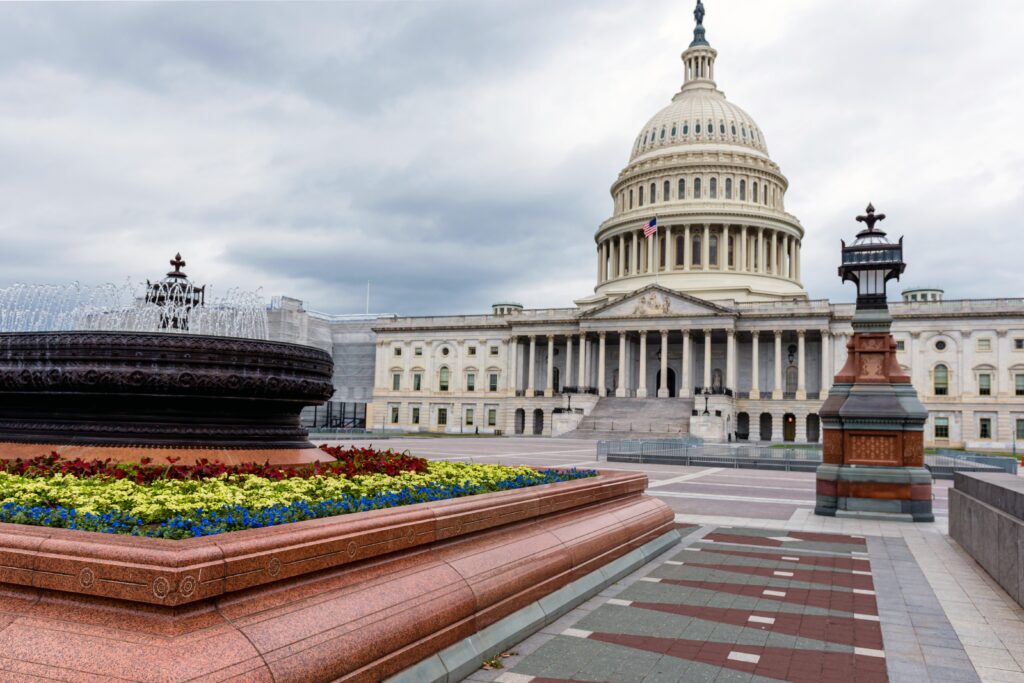
Latest News: Development of a National Provider Directory
Back in June, I was on the Monitor Mondays broadcast discussing the initial momentum within the Trump Administration for a single, national provider directory. Now,

The move comes as an estimated 10,000 baby boomers retire every day.
It may come as a shock to realize that the nation’s oldest baby boomer and the current U.S. life expectancy this year became the same age: 77.
That might help explain why the federal Administration for Community Living (ACL) is seeking input on a broad range of proposed updates to most of its Older Americans Act (OAA) programs, which haven’t been substantially changed since 1988.
“Our world has changed dramatically in the 35 years since,” the ACL said in a post to its website. “The population of older adults has nearly doubled and has grown increasingly diverse. Older adults are living longer than ever before, and their expectations are different from those of earlier generations. Increased understanding of the impact of the social determinants of health is reshaping healthcare, as non-medical services that help people avoid hospitalization and institutional care – like those provided through OAA programs – are increasingly being incorporated into healthcare service delivery models.”
Specifically, officials said that the proposed changes are needed to align regulations to the current version of the OAA statute and reflect the aims of the services offered under it.
“Like the Inflation Reduction Act, which has cut healthcare costs for millions of older adults, and the steps we have taken to strengthen Medicare and Medicaid, the update to the Older Americans Act regulations reflects President Biden’s commitment to supporting the health and well-being of older adults,” U.S. Department of Health and Human Services (HHS) Secretary Xavier Becerra said in a statement (the ACL is an umbrella program of HHS). “By strengthening the stability and sustainability of Older Americans Act programs and promoting equitable access to its services, the proposed rule will help ensure that older people, particularly those in greatest need, have the support they need to live independently and age with dignity.”
“The overwhelming majority of older adults want to live in the community as they age, and almost 95 percent of them do. For many, services provided through the Older Americans Act – such as rides to doctors’ appointments, nutritious meals, in-home services, and support to family caregivers – make this possible,” Acting Assistant Secretary for Aging and ACL Administrator Alison Barkoff added. “This proposed rule will strengthen the system of support that allows millions of older adults to stay in their own homes. With our population aging rapidly, and nearly three out of four people needing assistance to age in place, this is more important than ever.”
Officials said the proposed rule specifically would include the following:
The OAA was passed in 1965 as part of President Lyndon B. Johnson’s “Great Society” reforms, becoming the first federal program specifically created to provide services to older adults. It is generally reauthorized by Congress every four years, and it continues to benefit Americans over 60 – of which there is a rapidly growing number.
Baby boomers are defined as the estimated 76 million Americans born between the years of 1946 to 1964, when the U.S. birth rate hovered between about 21 and 26 births per 1,000 people annually – it has fallen by more than a third since. The trend pushed the country’s median age to a whopping 38.8 as of earlier this year.
A Forbes article published late last year noted that an estimated record 26 million Americans more than 50 live alone, and by the end of the decade, all baby boomers will be over the age of 65.
Comments on the proposed rule may be submitted by “all who are interested in improving implementation of OAA programs and services,” officials said, with input from aging and disability networks, as well as OAA beneficiaries, labeled “particularly crucial.” Comments can be made anytime through Aug. 15, in one of two ways: online at Regulations.gov (enter “2023-12829” in the search bar, select ACL’s proposed rule, and then click the blue “comment” box at the top left of the page) or by mail sent to the Administration for Community Living, Administration on Aging, Attention: ACL-AA17-P, 330 C Street SW, Washington, DC 20201.
To read a brief summary of the proposed rule, go online to: https://acl.gov/sites/default/files/oam/2023/Overview%20-%20Proposed%20OAA%20Regulations%20-%202023%20-%20final.pdf
To read the full Federal Register posting in its entirety, go to: https://www.federalregister.gov/documents/2023/06/16/2023-12829/older-americans-act-grants-to-state-and-community-programs-on-aging-grants-to-indian-tribes-for
Mark Spivey is a national correspondent for RACmonitor and ICD10monitor who has been writing and editing material about the federal oversight of American healthcare for nearly 15 years. He can be reached at mcspivey33@gmail.com.


Back in June, I was on the Monitor Mondays broadcast discussing the initial momentum within the Trump Administration for a single, national provider directory. Now,

The federal government may have shut down, but there has been no pause for the 340B drug pricing program. The more than 1,600 safety-net hospitals
Please log in to your account to comment on this article.

Accurately determining the principal diagnosis is critical for compliant billing, appropriate reimbursement, and valid quality reporting — yet it remains one of the most subjective and error-prone areas in inpatient coding. In this expert-led session, Cheryl Ericson, RN, MS, CCDS, CDIP, demystifies the complexities of principal diagnosis assignment, bridging the gap between coding rules and clinical reality. Learn how to strengthen your organization’s coding accuracy, reduce denials, and ensure your documentation supports true medical necessity.

Denials continue to delay reimbursement, increase administrative burden, and threaten financial stability across healthcare organizations. This essential webcast tackles the root causes—rising payer scrutiny, fragmented workflows, inconsistent documentation, and underused analytics—and offers proven, data-driven strategies to prevent and overturn denials. Attendees will gain practical tools to strengthen documentation and coding accuracy, engage clinicians effectively, and leverage predictive analytics and AI to identify risks before they impact revenue. Through real-world case examples and actionable guidance, this session empowers coding, CDI, and revenue cycle professionals to shift from reactive appeals to proactive denial prevention and revenue protection.

Sepsis remains one of the most frequently denied and contested diagnoses, creating costly revenue loss and compliance risks. In this webcast, Angela Comfort, DBA, MBA, RHIA, CDIP, CCS, CCS-P, provides practical, real-world strategies to align documentation with coding guidelines, reconcile Sepsis-2 and Sepsis-3 definitions, and apply compliant queries. You’ll learn how to identify and address documentation gaps, strengthen provider engagement, and defend diagnoses against payer scrutiny—equipping you to protect reimbursement, improve SOI/ROM capture, and reduce audit vulnerability in this high-risk area.

Only ICD10monitor delivers what you need: updates on must-know changes associated with the FY26 IPPS, including new ICD-10-CM/PCS codes, CCs/MCCs, and MS-DRGs, plus insights, analysis and answers to your questions from two of the country’s most respected subject matter experts.

Get clear, practical answers to Medicare’s most confusing regulations. Join Dr. Ronald Hirsch as he breaks down real-world compliance challenges and shares guidance your team can apply right away.

Federal auditors are zeroing in on Inpatient Rehabilitation Facility (IRF) and hospital rehab unit services, with OIG and CERT audits leading to millions in penalties—often due to documentation and administrative errors, not quality of care. Join compliance expert Michael Calahan, PA, MBA, to learn the five clinical “pillars” of IRF-PPS admissions, key documentation requirements, and real-life case lessons to help protect your revenue.

During this essential RACmonitor webcast Michael Calahan, PA, MBA Certified Compliance Officer, will clarify the rules, dispel common misconceptions, and equip you with practical strategies to code, document, and bill high-risk split/shared, incident-to & critical care E/M services with confidence. Don’t let audit risks or revenue losses catch your organization off guard — learn exactly what federal auditors are looking for and how to ensure your documentation and reporting stand up to scrutiny.

Learn how to navigate the proposed elimination of the Inpatient-Only list. Gain strategies to assess admission status, avoid denials, protect compliance, and address impacts across Medicare and non-Medicare payors. Essential insights for hospitals.
Happy National Doctor’s Day! Learn how to get a complimentary webcast on ‘Decoding Social Admissions’ as a token of our heartfelt appreciation! Click here to learn more →
CYBER WEEK IS HERE! Don’t miss your chance to get 20% off now until Dec. 2 with code CYBER24